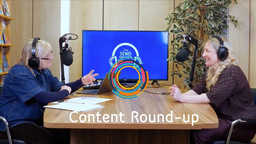Content round-up: Pathological Demand Avoidance (PDA)

According to the PDA society, Pathological Demand Avoidance (aka PDA) involves not being able to do certain things at certain times, either for yourself or others, and also refers to the things we do in order to avoid demands. It is human for us to want to avoid demands, however for some autistic people, this can cause them to refuse, withdraw, ‘shutdown’.
On the SEND Network, we have a wide range of content covering PDA - but here are some of our highlights.
What is PDA?
An Introduction to Pathological Demand Avoidance
At the 2021 Tes SEND Show, Tigger Pritchard (Advocate/Consultant/Trainer - Tiggertraining) introduces the proposed sub-type of autism spectrum disorder; Pathological Demand Avoidance (PDA).
Identification of PDA
Strategies to support children with PDA
Supporting the learning of children and young people with Pathological Demand Avoidance (PDA)
Education Consultant Ruth Fidler spoke at the 2022 Tes SEND Show about understanding the PDA profile, supporting the educational experiences of pupils and exploring effective teaching approaches.





Please sign in or register for FREE
If you are a registered user on SEND Network, please sign in